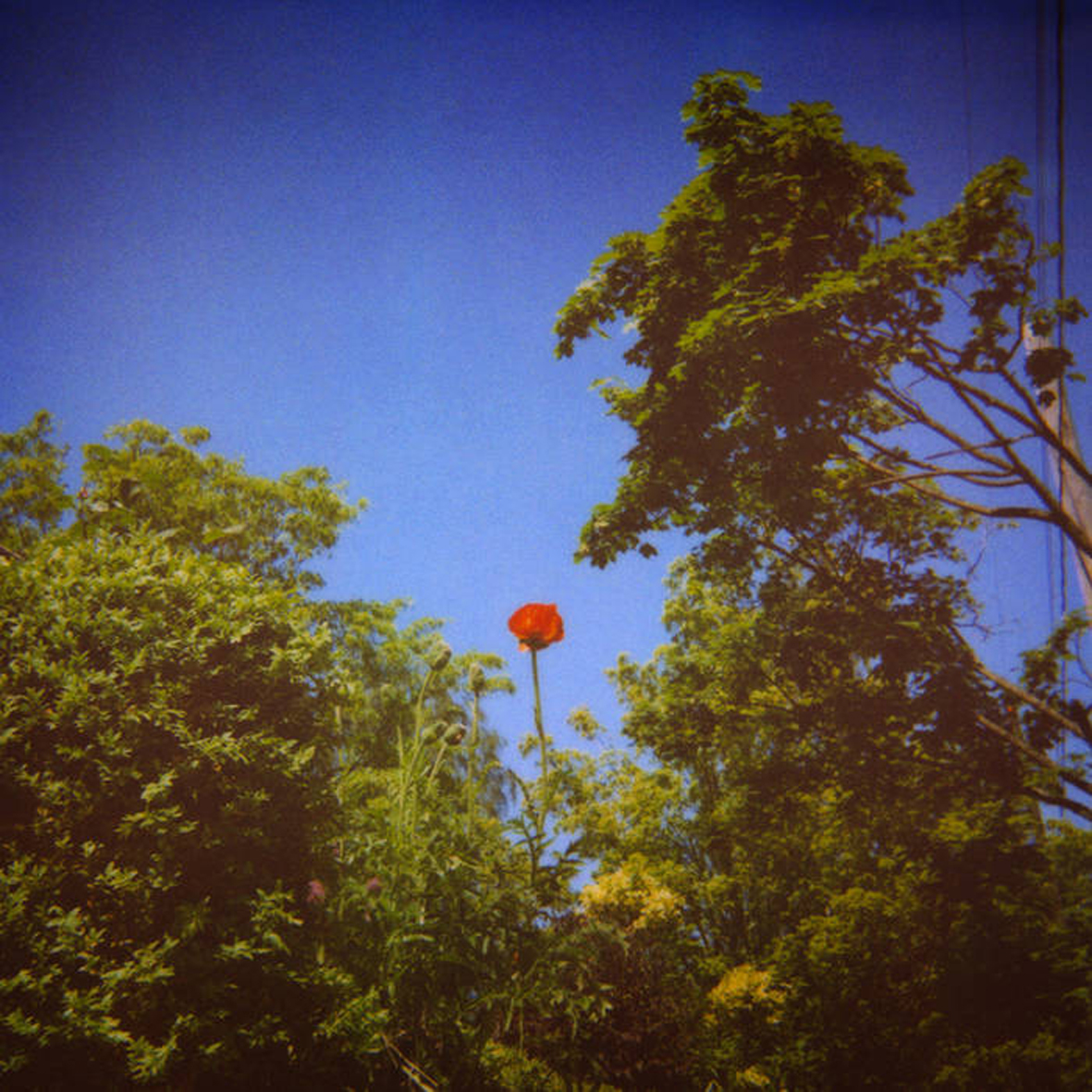 To my great shame, I slept on this excellent album for entirely too long, as Thomas Meluch’s mannered songwriting has never quite connected with me despite my appreciation for his hushed, bleary, and languorous aesthetic.  With Sonnet, however, he largely dispenses with vocals in favor of a suite of warm, lush ambient drone, which is (predictably) far more to my taste. That said, I would definitely hail this as a stellar album even without the benefit of my unfairly subjective stylistic predispositions, as it is an archetypal Great Kranky Album, consistently hitting the same woozy, blissed-out sweet spot as other label luminaries like Windy & Carl.  As if that were not enough, the end of the album shows hints of something even better (and far more distinctive).  This may very well be Benoit Pioulard's masterpiece.
To my great shame, I slept on this excellent album for entirely too long, as Thomas Meluch’s mannered songwriting has never quite connected with me despite my appreciation for his hushed, bleary, and languorous aesthetic.  With Sonnet, however, he largely dispenses with vocals in favor of a suite of warm, lush ambient drone, which is (predictably) far more to my taste. That said, I would definitely hail this as a stellar album even without the benefit of my unfairly subjective stylistic predispositions, as it is an archetypal Great Kranky Album, consistently hitting the same woozy, blissed-out sweet spot as other label luminaries like Windy & Carl.  As if that were not enough, the end of the album shows hints of something even better (and far more distinctive).  This may very well be Benoit Pioulard's masterpiece.
As far as album origin stories go, Sonnet is a fairly unusual case, as it is partially rooted in field recordings that Meluch made in 2013 of air conditioners, birds, insects, and washing machines.  Rather than just using the recordings themselves as background texture, Thomas attempted to recreate their timbres and harmonies on his guitar and chopped them into loops.  That is already an appealingly left-field move, but he then went one step further and also recreated the ambient sounds that he experienced in a series of dreams.  If Sonnet were not such a wonderful album, such a backstory would probably make me cringe, but it proves to be quite elucidating here.  These pieces are mesmerizing precisely because they do not follow any sort of expected or traditional compositional patterns, instead emulating non-musical sources and adhering to a hazy sort of dream logic.  In a more specific sense, that means that most of Sonnet’s 14 pieces drift along in a warmly rippling and hissing fever dream, achieving a blurred and veiled beauty without ever cohering into concrete structures or melodies.  To his credit, Thomas completely avoids all the inherent pitfalls of this vein by avoiding toothless oceanic bliss through a variety of sharp, distressed, and treble-heavy textures. Sonnet certainly feels like a dream, but it is an uneasy one experienced through blown-out speakers and a malfunctioning tape deck.
The overall effect is still quite a comforting (albeit disorienting) one and Meluch’s rare divergences only deepen the spell rather than break it.  For example, "A Shade of Celadon" is an actual song with vocals and lyrics, but it feels disconnected, slowed-down, and concealed beneath a thick veil of hiss.  Also, the whole thing completely dissipates into a disjointed clattering of cymbals after only a couple minutes.  The warbling "As Would the Weaver," on the other hand, resembles a pitch-shifted loop of a coyote fed through a chorus pedal.  The best pieces, however, simply take the album's normally bleary and cracked aesthetic and organically build it to poignant, dreamy crescendos.  In "Upon The Break Arch," Meluch combines an undulating bed of drone and a twinkling melody and gradually snowballs towards a bittersweetly pulsing and wounded-sounding catharsis.  "Shut-ins on Sundays See" is another highlight, as a glacially unfolding flow of chord swells increasingly gives way to a melancholy melody and host of echoing pops and clicks.  The true centerpiece of the album, however, is "The Very Edge of Its Flame," which can best be described as "like being inside a snowglobe on heroin": endless rippling and hissing warmth and an alternately ascending and descending music box melody that leaves a trail of heavenly afterimages.  It is an absolutely glorious piece (and thankfully a long one as well).
The most amazing quality of Sonnet, however, is how weirdly natural it all sounds.  The best pieces do not sound at all deliberate or composed–they feel like they just kind of happened, as if Meluch had just released field recordings of his dreams without any editing.  That is an incredibly hard illusion to pull off (or quite an astonishing technical feat if that is actually what he did).  The closest that I can come to a valid critique is this: most of the album is merely very good–it does not become truly great until somewhere around the tenth song.  That is probably just the result of intelligent sequencing though.  While it may have taken a while for Sonnet to completely grab my attention, it still did lure me in...and then it blossomed into an utterly sublime and achingly beautiful final act.  I would not have changed anything.  Sonnet is a surprise contender for one of my favorite albums of the year.
 
 
Read More

